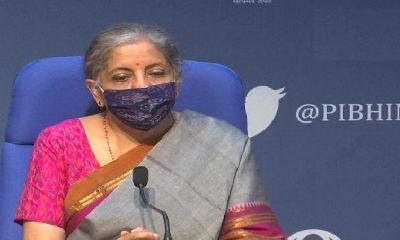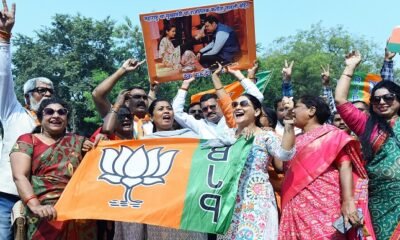Business
Role of women in socio-economic growth
Gundam Sai Tanishka : Although women are underrepresented in the field of economics, many see little need for intervention, arguing that women are inherently less interested in economics, or are less willing or able to get the math skills needed to do well in the subject. At the same time, others support active efforts to increase the number of women in the field, citing other possible causes of their current underrepresentation. These people argue, for example, that women are deterred from entering the field because of a lack of female role models, or that women are discouraged by an unappealing classroom environment . . An economically large but statistically insignificant difference between sexes in the probability of majoring in economics remains, however, which may be due to differing tastes or information about the nature of economics.
CORONA CRISIS; WHAT THE POORS WILL DO DURING THE LOCKDOWN?
Women have always been contributing to enable the economy achieve tremendous progress. But it is the gender bias that still exists at every social stratum, even in the most educated and developed society, is unable to digest this visible contribution of women in all walks of life. In some regions, patriarchal societies diminish the role of women in important matters. This masochist thinking is, however, beginning to fade gradually with the passage of time.
efforts during the post- Independence era got a shot in the arm when Mrs Indira Gandhi became the first lady Prime Minister. Women got empowered and moved to participate further in all spheres of services – financial, administrative, judicial and education to name a few. Women in India are playing an important role in the country’s governance. Many women have emerged as exemplary leaders at the policy level as well as the community level. The presence of women in various decision making bodies helped develop confidence among other women, opening up possibilities for future.
It is important to note the critical role women have played in working together to forge solidarity, and unity among themselves. Together they have been able to lobby and influence the enactment of laws that protect and promote the rights of women. Women became a driving force of the socio-economic development of the country after the independence. Vast networks of women groups such as NGOs, associations and co-operatives at the grassroots level have played a pivotal role in providing empowerment initiatives which resulted in socio-economic development and income generating activities. This, in turn, paved the way for sustainable development and economic growth of the country.

















